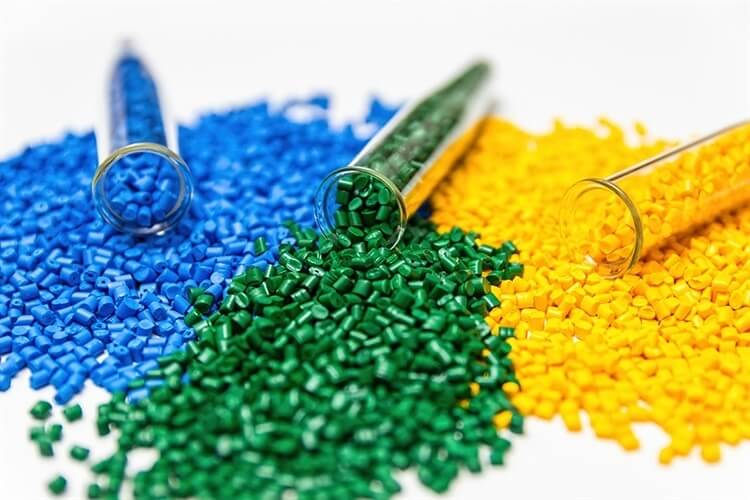Top Uses Polymers: Enhancing Everyday Products
Top Uses Polymers: Enhancing Everyday Products
Blog Article
Using the Power of Polymers: Recognizing the Comprehensive Usages and Favorable Impacts
Polymers, with their diverse chemical frameworks and residential or commercial properties, have actually become vital in numerous markets, changing the way we connect with materials on an everyday basis. As we explore the comprehensive usages of polymers and their role in forming an extra lasting, efficient, and ingenious future, it comes to be evident that their capacity is as substantial as the molecules themselves.
Flexibility in Everyday Products
Polymers display impressive versatility in a broad variety of day-to-day items, showing their indispensable role in contemporary society. From the versatile plastic case of smart devices to the durable fibers in clothing, polymers have transformed the method we engage with items in our everyday lives. Among one of the most usual uses polymers is in packaging materials. Polyethylene, as an example, is widely utilized in food packaging due to its lightweight, resilient, and moisture-resistant homes. Furthermore, polymers play a vital function in the auto sector, where they are made use of in producing lightweight components that boost gas effectiveness.
In addition, polymers have actually found their means right into the healthcare field, with applications varying from medical tools to medication delivery systems. Naturally degradable polymers are used in stitches and implants, reducing the threat of unfavorable responses in clients. In the building and construction market, polymers are included into paints, adhesives, and insulation products, enhancing longevity and energy performance. In general, the convenience of polymers in day-to-day products emphasizes their significance in driving advancement and improving high quality of life.
Sustainability in Material Innovations
With the continuous focus on environmental consciousness and resource performance, the emphasis shifts towards sustainability in material technologies, showing a growing dedication to liable production practices across different industries. Over the last few years, there has actually been a notable surge in the development of sustainable materials, particularly within the realm of polymers. These ingenious materials are created to decrease environmental influence throughout their entire lifecycle-- from sourcing basic materials to disposal or recycling.
One considerable element of sustainability in product technologies is the principle of biodegradability. Biodegradable polymers have garnered focus for their ability to damage down normally right into safe results, lowering waste and air pollution. In addition, using recycled polymers acquired from post-consumer or post-industrial resources is getting grip as a way of promoting a circular economic climate and decreasing reliance on virgin materials.
:max_bytes(150000):strip_icc()/three-dimensional-model-of-polyvinyl-chloride-165874889-5c425ea7c9e77c000188be6d.jpg)
Enhancing Efficiency in Design
Enhancing performance in engineering requires a meticulous integration of advanced technologies and specific techniques to maximize capability and effectiveness in different industrial applications. Polymers play an essential role in this undertaking, using a vast array of benefits that boost the performance of engineering materials and components.
One trick element of improving performance in design is the capability of polymers to improve resilience and toughness. By including polymers into design styles, makers can produce light-weight yet durable pop over to these guys structures that can hold up against high degrees of stress and pressure. This characteristic is particularly useful in industries such as aerospace, auto, and building, where the demand for solid yet lightweight products is paramount.
In addition, polymers can likewise boost performance by giving thermal and chemical resistance, minimizing rubbing, and enhancing electric conductivity. These residential properties make polymers perfect for a large range of design applications, including seals, bearings, finishes, and electronic elements. Polymers. By more tips here using the distinct buildings of polymers, engineers can maximize the performance of their styles and develop more effective and trusted products
Effect on Clinical Advancements
Polymers have actually played a vital duty in modern-day clinical improvements, varying from medication shipment systems to tissue engineering. One of the essential areas where polymers have made a considerable effect is in the advancement of naturally degradable sutures and implants.
Moreover, polymer-based materials are significantly being made use of in clinical gadgets such as catheters, stents, and prosthetics due to their biocompatibility and versatility. Polymer finishes on medical devices can protect against infections and enhance overall patient end results - Polymers. Furthermore, developments in nanomedicine have made it possible for using polymer nanoparticles for targeted drug distribution, improving the efficacy and lowering side results of various drugs
Function in Environmental Conservation

Furthermore, polymers are utilized in water therapy processes, assisting in the purification and recycling of water resources. This aids in reducing water contamination and ensuring access to tidy water for both human consumption and environmental health and wellness. Polymers also contribute in farming through the advancement of eco-friendly composts and controlled-release plant foods, promoting lasting farming techniques.
Conclusion
In conclusion, polymers have proven to be a versatile and important material in various industries, from everyday items to design and clinical improvements. Comprehending the comprehensive uses of polymers underscores their importance in driving innovation and check my site progression in several areas.
Report this page